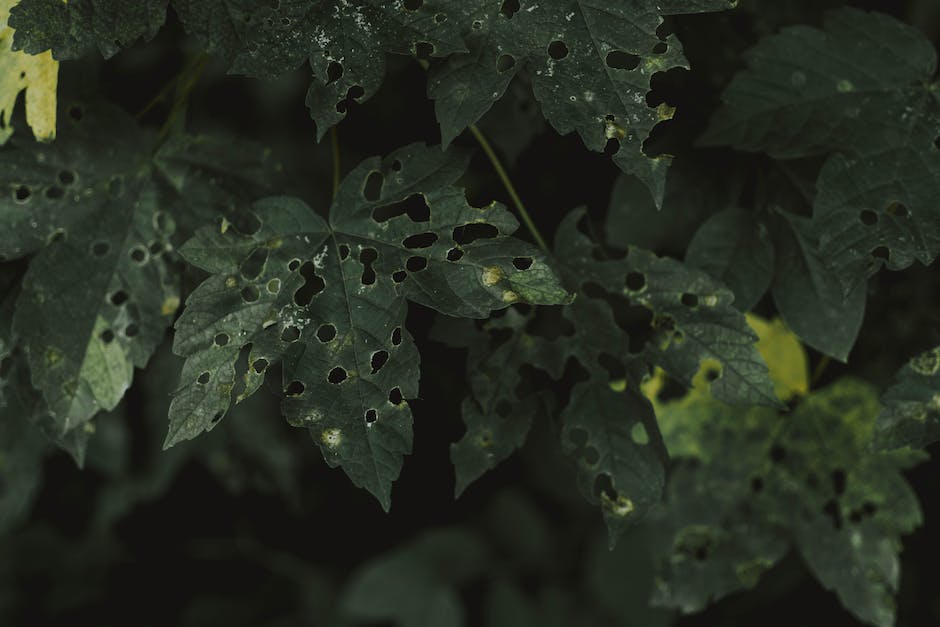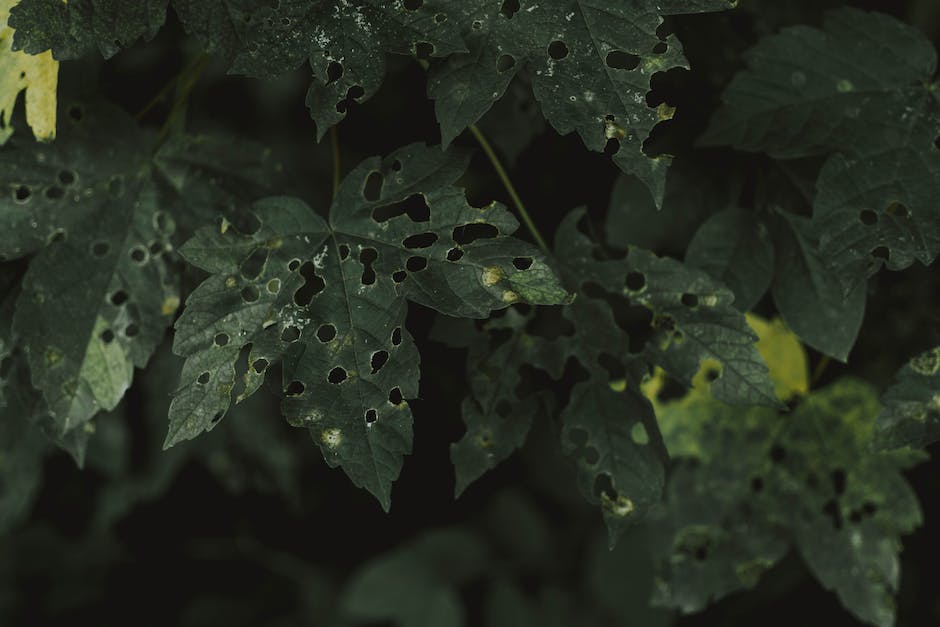Organic pest control is a method of controlling pests that uses natural ingredients and methods. It is considered an environmentally friendly way to control pests because it does not use synthetic chemicals or other harmful substances.
Organic pest control is the use of naturally occurring substances and physical controls to manage pests. These methods are typically safer for humans, animals, and the environment than traditional pest control methods that rely on synthetic chemicals.
What is an organic pesticide?
Organic pesticides are generally seen as being safer for the environment than synthetic pesticides. However, this does not mean that they are completely safe. Some organic pesticides can still cause environmental harm. It is important to research any pesticide before using it, whether it is organic or synthetic.
Oil spray is a great way to get rid of pests on your plants. Mix 1 cup of vegetable oil with 1 tablespoon of mild liquid soap and add 2-8 teaspoons of this mixture to 1 quart of water. Spray your plants as above and the oil will smother the insects. This is effective on aphids, thrips, mites, and scale.
What is an example of an organic pesticide
Organic contact insecticides are effective against a wide range of caterpillars and other small pests. They include botanical insecticides like neem, natural pyrethrin and Chenopodium ambrosioides, and microbial extracts like spinosad. Spinosad-based products are particularly effective for the quick kill of caterpillars and small pests.
Natural pesticides have many advantages over synthetic pesticides. They are more biodegradable and leave less residue in the soil. They are also less likely to harm humans or animals. Natural pesticides may be more cost-effective as a whole, considering the environmental cost of chemical pesticides.
Whats does organic mean?
Organic produce is grown using natural substances and physical, mechanical, or biologically based farming methods. Produce can be called organic if it’s certified to have grown on soil that had no prohibited substances applied for three years prior to harvest.
Pesticides approved for use in organic farming include neem oil, made from the neem tree, and pyrethrin, which is made from chrysanthemum plants A few synthetic chemicals are also allowed in organic farming Examples include copper sulfate, alcohols, chlorine products, hydrogen peroxide, and soaps.
Are organic pesticides better for the environment?
The benefits of organic farming on the environment are vast. Organic farming practices involve less pollution, soil erosion, and energy consumption – all of which are detrimental to the health of the environment. Furthermore, eliminating the use of pesticides in farming also benefits nearby birds and animals, as well as people who live close to farms. In sum, organic farming is better for environmental health due to the multitude of benefits it provides.
There are a variety of different insect repellents available on the market, each with its own unique set of ingredients. One of the more popular types of insect repellents is Murphy’s Naturals Personal Insect Repellent, which uses a plant-based lemon eucalyptus formula. Other popular brands of insect repellents include Meow Meow Tweet Insect Repellent, Jao Patio Oil, and Badger Anti-Bug Shake & Spray. Garner’s Garden DEET Free Bug Spray and Kinfield Golden Hour DEET-Free Repellent are two more options for those looking for a DEET-free insect repellent. Finally, Harper’s Naturals Natural Bug Spray is another all-natural option made with essential oils.
Is organic farming 100% pesticide free
Organic farming is a type of agriculture that focuses on using natural processes and materials to produce food and other crops. This includes things like using natural pest control methods, starting with plants that are naturally resistant to pests, and using cover crops to improve soil health.
There are many different types of organic compounds, but they all share some common features. They are all made up of carbon and hydrogen, and they generally have a lot of energy stored in their bonds. This makes them very useful as fuels.
Organic compounds are the basis for all life on Earth. carbohydrates, fats, proteins, and nucleic acids are all essential to the function of cells. Petroleum and natural gas are also important organic compounds, as they are the main components of fossil fuels.
Can organic pesticides harm humans?
Organic pesticides are closely regulated for safety, but can be harmful to health if consumed in large quantities. For example, exposure to the organic pesticide rotenone has been linked with an increased risk of Parkinson’s disease. Therefore, it is important to be aware of the potential risks associated with organic pesticides before using them.
Organic pesticides are those that are derived from natural sources, as opposed to synthetic pesticides, which are created in laboratories. There are many different types of organic pesticides, but some of the most popular include neem, nicotine sulphate, sabadilla, rotenone, and pyrethrum/pyrethrins. Each of these pesticides has its own benefits and drawbacks, so it’s important to do some research to figure out which one is best for your particular gardening needs.
What are the advantages of organic
Organic produce contains fewer pesticides than conventionally grown produce. This is because organic farmers are not allowed to use synthetic pesticides on their crops.
Organic food is often fresher because it doesn’t contain preservatives that make it last longer. This is because organic farmers are not allowed to use synthetic pesticides or chemicals on their crops.
Organic farming tends to be better for the environment because it relies on more sustainable practices. For example, organic farmers often use cover crops and crop rotation to improve soil health and reduce the need for synthetic fertilizers.
Organically raised animals are NOT given antibiotics, growth hormones, or fed animal byproducts. This means that they are less likely to be exposed to harmful chemicals and hormones.
There are many benefits to using natural pesticides as opposed to synthetic pesticides. Natural pesticides are often more effective at targetting specific pests, and they are also less likely to harm beneficial insects. In addition, natural pesticides are generally safer for humans and the environment.
What are the benefits of organic products?
Organic produce may contain more of certain antioxidants and types of flavonoids than non-organic produce. Antioxidants are believed to have many health benefits, including reducing the risk of some chronic diseases. Omega-3 fatty acids are a type of fat that is important for good health. The feeding requirements for organic farm animals (livestock) usually cause higher levels of omega-3 fatty acids in their meat and milk. This is because they are fed grass and alfalfa, which are rich in omega-3 fatty acids.
Carbohydrates, lipids, proteins, and nucleic acids are the four main types of organic compounds found in all living things. Carbohydrates are essential for providing energy to the body, while lipids are important for maintaining cell membranes and other cellular functions. Proteins are essential for the structure and function of all cells and tissues, while nucleic acids are necessary for the genetic information within cells.
Is organic pesticide free
Organic foods are not necessarily always free of pesticides. Some organic pesticides are naturally occurring substances like soaps, lime sulfur and hydrogen peroxide.
Carbohydrates, lipids, proteins, and nucleic acids are all important types of organic molecules. Carbohydrates are important for energy, lipids are important for cell membranes and other functions, proteins are important for structure and function, and nucleic acids are important for genetic information.
Final Words
Organic pest control is the use of natural methods to manage pests. This might include using beneficial predators or parasites, developing habitat to encourage beneficial organisms, or using naturally-occurring or sustainable compounds as pesticides.
Organic pest control is a method of controlling pests that uses natural ingredients and methods. This type of pest control is often more effective than traditional methods, and it is also better for the environment.

